What If History Happened?
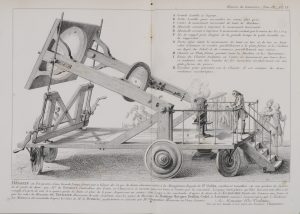
AI: ⚖️ Antoine Lavoisier, ⚛️ John Dalton, 🔡 Jöns Jacob Berzelius, 📑 Dmitri Mendeleev, and ☢️ Marie Curie Compared: Fathers of Chemistry
“Nothing is lost, nothing is created, all is transformed.” – Antoine Lavoisier
“Atoms cannot be seen, but we infer their existence and properties from the ways in which substances behave.” – John Dalton
“Every chemical combination is wholly and solely dependent on two opposing forces, positive and negative electricity, and every chemical compound must be composed of two parts combined by the agency of their electrochemical reaction since there is no third force.” – Jöns Jacob Berzelius
“The periodic law discovered by me, being not merely a summary of facts, but a reliable and fruitful method of investigation, may serve as a means of further progress in the discovery of new elements.” – Dmitri Mendeleev
“Marie Curie is, of all celebrated beings, the only one whom fame has not corrupted.” – Albert Einstein
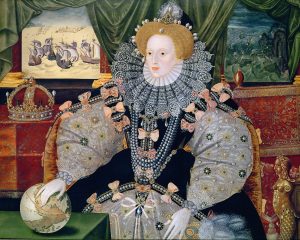
AI: 🇪🇸 Isabella I of Castile (Spain), 🇬🇧 Elizabeth I of England, 🇦🇹 Maria Theresa of Austria, 🇷🇺 Catherine II “The Great” of Russia, and 🇬🇧 Victoria of the United Kingdom Compared: The “Golden Ages” of Queens 👑
Isabella I of Castile was “very powerful, very prudent, wise, very honest, chaste, devout, discreet, truthful, clear, without deceit. Who could count the excellences of this very Catholic and happy Queen, always very worthy of praises.” – Andrés Bernáldez
“My loving people, we have been persuaded by some that are careful of our safety, to take heed how we commit ourself to armed multitudes for fear of treachery; but I assure you, I do not desire to live to distrust my faithful and loving people … I know I have the body but of a weak and feeble woman, but I have the heart and stomach of a king, and of a King of England too, and think foul scorn that Parma or Spain, or any Prince of Europe should dare to invade the borders of my realm.” – Elizabeth I to the Troops at Tilbury
“I found myself without money, without credit, without army, without experience and knowledge of my own and finally, also without any counsel because each one of them at first wanted to wait and see how things would develop.” – Maria Theresa
“I praise loudly, I blame softly.” – Catherine The Great
“The British Empire is a great moral force for good in the world.” – Queen Victoria

AI: General Heinz Guderian, Marshal Georgy Zhukov, and General George S. Patton Compared: Tank Warfare (Part III 💥 General George S. “Old Blood and Guts” Patton)
General George S. Patton Jr.: “A good plan, violently executed now, is better than a perfect plan next week.” This quote embodies Patton’s aggressive, action-oriented approach to warfare. He prioritized speed, decisiveness, and taking the initiative over meticulous planning and caution. It reflects his belief in seizing opportunities and overwhelming the enemy with relentless attacks.
“George Patton is the best damn general we have, but he’s crazy as a bedbug.” (Attributed, possibly apocryphal, but reflecting Eisenhower’s overall view). This captures the essence of Eisenhower’s dilemma: recognizing Patton’s brilliance while being wary of his unpredictable behavior.
“There is a definite ‘luster’ that Patton gives to an army…” (From a letter to General George C. Marshall, reflecting on Patton’s value as a combat leader). This quote acknowledges Patton’s ability to inspire his troops and achieve results. He recognized Patton’s unique talents.
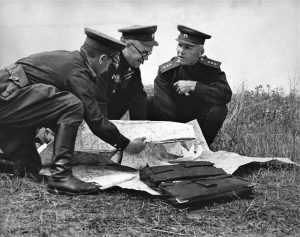
AI: General Heinz Guderian, Marshal Georgy Zhukov, and General George S. Patton Compared: Tank Warfare (Part II 🔥 Marshal Georgy Zhukov)
Marshal Georgy Zhukov: “Victory is achieved through fire and maneuver.” This quote reflects Zhukov’s emphasis on the combined arms approach and the operational art of Soviet “deep battle.” It highlights the need for both overwhelming firepower and skillful movement of forces to achieve decisive breakthroughs and encirclements.
Berlin, 1945: After the German surrender, Patton and Zhukov met several times in Berlin. They reviewed troops together, attended official ceremonies, and even exchanged gifts: Patton gave Zhukov a Colt Peacemaker pistol, and Zhukov gave Patton a Russian pistol.

AI: General Heinz Guderian, Marshal Georgy Zhukov, and General George S. Patton Compared: Tank Warfare (Part I ⚡ General Heinz “Blitzkrieg” Guderian)
General Heinz Guderian: “Speed is the essence of war. Concentrate your armor…do not distribute it in small packets.” This quote concisely captures Guderian’s belief in rapid, decisive maneuver and the core principle of Blitzkrieg. It highlights his focus on overwhelming the enemy with swift, concentrated attacks before they can react effectively.
Winston Churchill: “I speak to you for the first time as Prime Minister in a solemn hour for the life of our country, of our Empire, of our Allies, and, above all, of the cause of Freedom. A tremendous battle is raging in France and Flanders. The Germans, by a remarkable combination of air bombing and heavily armoured tanks, have broken through the French defences north of the Maginot Line, and strong columns of their armoured vehicles are ravaging the open country, which for the first day or two was without defenders.”

AI: Thomas J. Watson, Jr., Seymour Cray, and Steve Jobs Compared: Computer Titans (Part III 🍏 Steve Jobs)
I was lucky to get into computers when it was a very young and idealistic industry. There weren’t many degrees offered in computer science, so people in computers were brilliant people from mathematics, physics, music, zoology, whatever. They loved it, and no one was really in it for the money […] There are people around here who start companies just to make money, but the great companies, well, that’s not what they’re about.
—Steve Jobs
Basically Steve Wozniak and I invented the Apple because we wanted a personal computer. Not only couldn’t we afford the computers that were on the market, those computers were impractical for us to use. We needed a Volkswagen. The Volkswagen isn’t as fast or comfortable as other ways of traveling, but the VW owners can go where they want, when they want and with whom they want. The VW owners have personal control of their car.
—Steve Jobs
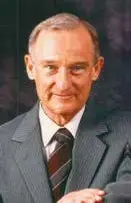
AI: Thomas J. Watson, Jr., Seymour Cray, and Steve Jobs Compared: Computer Titans (Part II 🚀 Seymour Cray)
The New York Times quotes –
“The Cray-1 is said by computer experts to be the fastest computer ever made for scientific purposes, able to carry out in one second the work that would keep a person busy at a desk calculator for a month.”
“Steve Jobs, in a 1985 interview, when asked about the importance of design simplicity, paused, then said with a slight smile, ‘You know, Seymour Cray once said something like, ‘Simplicity is the ultimate sophistication.’ He really understood that. We try to keep that in mind at Apple.'”
“If you were plowing a field, which would you rather use: two strong oxen or 1024 chickens?”
Meaning: Cray’s analogy for his preference for a few powerful processors over many weaker ones (in the context of his time). He believed a streamlined design was more efficient for many scientific workloads.
Cray’s quotes -“One of my guiding principles is don’t do anything that other people are doing. Always do something a little different if you can. The concept is that if you do it a little differently there is a greater potential for reward than if you the same thing that other people are doing.”
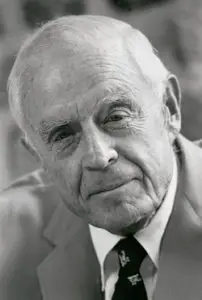
AI: Thomas J. Watson, Jr., Seymour Cray, and Steve Jobs Compared: Computer Titans (Part I 🌐 Thomas J. Watson, Jr.)
Quote Fortune Magazine: Thomas Watson Jr.
“The greatest business risk of the twentieth century” – This was how Fortune described Watson Jr.’s decision to invest heavily in the System/360, a gamble that ultimately paid off and transformed IBM.
Quote The New York Times: Thomas Watson Jr.
“He was a complex and contradictory figure, a man of great drive and ambition who also possessed a deep sense of social responsibility.” – The Times captured the different facets of his personality, acknowledging his business acumen and commitment to social causes.
Quote Steve Jobs: Thomas Watson Jr.
“Thomas Watson Jr. once said, ‘Good design is good business.’ I’ve always believed that. That’s why Apple spends so much on design.”
This captures Jobs’ philosophy on the importance of design as a core part of business strategy.

AI: Fall of the Western Roman Empire 🔥
On internal weaknesses:
“The empire died of indigestion.” – Will Durant. This metaphorical quote suggests that the empire became too large and unwieldy to manage effectively, leading to internal problems.
On the complexity of the fall:
“The decline and fall of the Roman Empire is the greatest single drama in European history.” – Edward Gibbon. This is from Gibbon’s monumental work, The History of the Decline and Fall of the Roman Empire. He highlights the sheer scale and significance of the event.
On the legacy of Rome:
“Rome’s legacy is immense. It shaped Western civilization in countless ways.” – Mary Beard. This acknowledges the enduring impact of Roman law, culture, and institutions on the Western world.

AI: William Wyler, Martin Scorsese, and Steven Spielberg Compared: Best Director Oscar Nominations (Part III 🎬🌟 Steven Spielberg)
“I didn’t go to film school. I was self-taught. But I had great teachers, you know? All my influencers were the directors and the writers of the movies I was watching in theaters and on television. And my film school was really the cultural heritage of Hollywood and international filmmaking because there’s no better teacher than Lubitsch or Hitchcock or Kurosawa or Kubrick, you know, or Ford or William Wyler or Billy Wilder or Clarence Brown – I mean, Val Lewton. I mean, those were my teachers.”
— Steven Spielberg, Fresh Air interview
“Spielberg is a giant. He’s one of the greatest filmmakers of all time.” – Martin Scorsese.
“Steven is a magician. He has a way of seeing the world that is both childlike and profound.” – John Williams.
“There’s no one better than Steven Spielberg at making a movie.” – Tom Hanks.
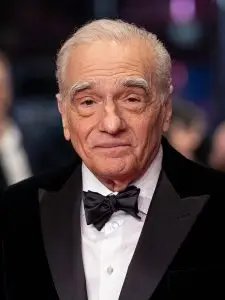
AI: William Wyler, Martin Scorsese, and Steven Spielberg Compared: Best Director Oscar Nominations (Part II 🎞️🔥 Martin Scorsese)
“Marty’s always pushing me to go further, to explore new territory. He’s not afraid to take risks, and he encourages me to do the same.” – This quote reveals how Scorsese challenges De Niro as an actor, pushing him to explore new depths and take on challenging roles.
“Marty has an incredible understanding of human nature. He knows how to get to the core of a character and bring out the truth in their emotions.” – This quote speaks to Scorsese’s ability to elicit powerful performances from his actors and his deep understanding of the human condition, which resonates with DiCaprio.
“Marty’s a magician. He’s able to create these worlds on film that are so real, so visceral, you feel like you’re right there in the middle of them.” – This quote highlights Spielberg’s admiration for Scorsese’s ability to create immersive and authentic cinematic worlds, often depicting the gritty realities of urban life and crime.
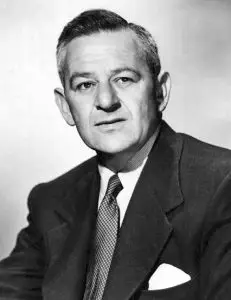
AI: William Wyler, Martin Scorsese, and Steven Spielberg Compared: Best Director Oscar Nominations (Part I 🎥✨ William Wyler)
It was all Wyler. I had known all the horrors of no direction and bad direction. I now knew what a great director was and what he could mean to an actress. I will always be grateful to him for his toughness and his genius.
—Bette Davis
If any film actor is having trouble with his career, can’t master the medium, and, anyway, wonders whether it’s worth it, let him pray to meet a man like William Wyler.
—Laurence Olivier
Dear Mad Willy. I saw Mrs. Miniver last night. It is absolutely wonderful. You repeatedly amaze me with the demonstrations of your talent, and I ask you to believe that it is with genuine pleasure that I salute this latest and greatest example of your work.
—Producer David Selznick
“Wyler’s films are full of humanity. He had a deep understanding of the human condition and a compassion for his characters, even the flawed ones.”
– Martin Scorsese
“Wyler’s films are timeless. They deal with universal themes and emotions that resonate with audiences across generations.”
– Steven Spielberg
AI: 🔺 Egyptian Pyramids, 🏛️ Karnak Temple, ⚰️ Valley of the Kings, 🗿 Abu Simbel, and 🦁 Great Sphinx Compared: Egyptian Engineering, Architecture, Astronomy, and Art 🌞
Herodotus, known as the “Father of History,” wrote early accounts of the Great Pyramid of Giza in his Histories.
Quote: “Egypt is the gift of the Nile.”
While no specific historical quotes are attributed directly to Karnak, Egyptologists like Zahi Hawass have commented on its grandeur in modern times.
Quote: “Karnak Temple is the largest and most impressive religious site in ancient Egypt. It was the Vatican of its time.”
Howard Carter, the archaeologist who discovered Tutankhamun’s tomb, is often quoted for his reflections on the Valley of the Kings.
Quote: “As my eyes grew accustomed to the light, details of the room within emerged slowly from the mist, strange animals, statues, and gold—everywhere the glint of gold.”
Jean-François Champollion, the French scholar who deciphered the Rosetta Stone, was awed by Abu Simbel’s monumental architecture during his travels.
Quote: “It is grandiose and overwhelming.”
Mark Lehner, a prominent Egyptologist, has written extensively about the Great Sphinx.
Quote: “The eternal guardian, whose gaze holds the mystery of the past and the wisdom of the ancients.”
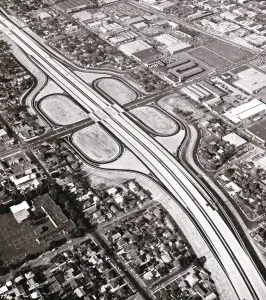
AI: Analyzes History’s Greatest 15 Highways, Roads, and Trails 🛣️
“The Appian Way is the Queen of Roads.” – Statius, Silvae (This poetic declaration captures the Appian Way’s status as the most important and impressive road in ancient Rome.)
“I have not told half of what I saw, for I knew I would not be believed.” – Marco Polo, The Travels of Marco Polo (While not specifically about the Silk Road itself, this quote speaks to the wonders encountered along this route, which opened up the world to those who traveled it.)
“…that long, dusty, tedious road, the terrors of which have been so often portrayed.” – Amelia Hadley, pioneer diarist (This quote captures the weariness and challenges faced on the Oregon Trail.)
“If you ever plan to motor west, / Travel my way, take the highway that’s the best. / Get your kicks on Route 66!” – Bobby Troup, “(Get Your Kicks on) Route 66.” (These lyrics from the iconic song capture the allure and excitement of Route 66.)
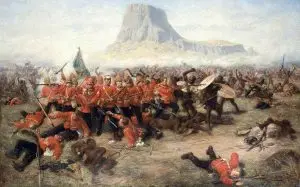
AI: Analyzes History’s Greatest 15 Military Disasters ⚔️
Sicilian Expedition: “The Athenians, on the other hand, became so confident that they would conquer Sicily that they quite forgot that they had an enemy to deal with.” – Thucydides
Teutoburg Forest: “Quintili Vare, legiones redde!” (“Quintilius Varus, give me back my legions!”) – Attributed to Emperor Augustus
Battle of Agincourt: “We few, we happy few, we band of brothers.” – Shakespeare
Battle of Lepanto: “From the fury of the Turk, deliver us, O Lord.” – Battle cry of the Holy League
Spanish Armada: “I know I have the body of a weak and feeble woman; but I have the heart and stomach of a king, and of a king of England too.” – Queen Elizabeth I
Battle of Isandlwana: “If we go forward, we die. If we go backward, we die. So let us go forward and die.” – Zulu warrior
Battle of France: “The Führer has achieved a victory greater than any in history.” – German radio broadcast announcing the fall of France

AI: Analyzes History’s Greatest 15 Lovers 💘
Cleopatra and Mark Antony: “I am dying, Egypt, dying.” – Shakespeare’s Antony and Cleopatra, capturing the tragic end of their passionate affair.
Queen Victoria and Prince Albert: “He was my life, my stay, my all.” – Queen Victoria expressing her profound grief and dependence on her beloved husband.
Isabella I of Castile and Ferdinand II of Aragon: “Tanto monta, monta tanto, Isabel como Fernando” (“It matters as much, it’s the same, Isabella as Ferdinand”) – This motto symbolized their equal partnership in ruling Spain.
Elizabeth Barrett Browning and Robert Browning: “How do I love thee? Let me count the ways.” – Elizabeth Barrett Browning, expressing the boundless nature of her love for Robert.
Mumtaz Mahal and Shah Jahan: “The Taj Mahal is a teardrop on the cheek of eternity.” – Rabindranath Tagore, capturing the beauty and sorrow enshrined in this monument to love.
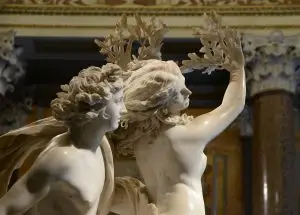
AI: Michelangelo Buonarroti, Gian Lorenzo Bernini, Antonio Canova, Donatello, and Auguste Rodin Compared: Mable Mines of Carrara Italy 🏔️✨
Michelangelo Buonarroti: “I saw the angel in the marble and carved until I set him free.” – This quote encapsulates Michelangelo’s belief that the ideal form already exists within the stone, and the sculptor’s task is to reveal it.
Gian Lorenzo Bernini: “I do not imitate nature; I compete with her.” – Bernini’s quote highlights his ambition to surpass the natural world in his art, creating even more dramatic and emotionally charged works.
Antonio Canova: “Beauty is the first test: there is no permanent place in the world for ugly mathematics.” – Canova’s words emphasize the importance of aesthetic beauty and harmony in art, even in works that might be based on mathematical principles.
Donatello: “The highest praise one can give to a work of art is to say that it is alive.” – Donatello’s quote reflects his desire to create sculptures that are not just realistic but also imbued with a sense of life and movement.
Auguste Rodin: “What makes my Thinker think is that he thinks not only with his brain, with his knitted brow, his distended nostrils and compressed lips, but with every muscle of his arms, back, and legs, with his clenched fist and gripping toes.” – Rodin’s words reveal his belief that the entire body, not just the face, can express thought and emotion.
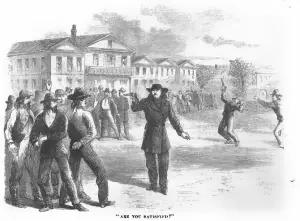
AI: Wild Bill Hickok, Billy the Kid, Wyatt Earp, John Wesley Hardin, and Bat Masterson Compared: “Fast Guns” in the West 🔫
Wild Bill Hickok: “I know I’m going to be killed someday, but I’m sure not going to die with my boots on.” – This quote reflects Hickok’s awareness of the dangers of his lifestyle and his determination to face his fate head-on.
Billy the Kid: “I’ll make a coffin of pine and dig a hole in the ground.” – This line, allegedly spoken by Billy the Kid before his death, reveals a sense of fatalism and acceptance of his violent life.
Wyatt Earp: “Fast is fine, but accuracy is everything.” – Earp, a pragmatist, emphasized the importance of precision over speed in a gunfight, reflecting his calculated approach.
John Wesley Hardin: “I never killed anyone who didn’t need killing.” – This chilling statement showcases Hardin’s cold-blooded nature and his justification for his numerous killings.
Bat Masterson: “There are many in this old world of ours who hold that things break about even for all of us. I have observed, for example, that we all get the same amount of ice. The rich get it in the summertime, and the poor get it in the winter.” – This quote, reflecting Masterson’s later years as a journalist, displays his wit and keen observation of social inequalities.
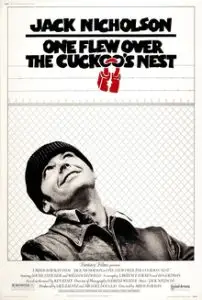
AI: 😈 Jack Nicholson, 👑 Laurence Olivier, and 😎 Paul Newman: Oscars Best Actor and Supporting Actor Nominations 🏆
Jack Nicholson:
“With my sunglasses on, I’m Jack Nicholson. Without them, I’m fat and sixty.”
This quote encapsulates Nicholson’s playful self-deprecation and awareness of his iconic status. It also hints at the complexities of fame and the challenges of aging in the public eye.
Laurence Olivier:
“Acting is a masochistic form of exhibitionism. It is not quite the occupation of an adult.”
Olivier’s quote reveals the demanding and often emotionally draining nature of acting. The willingness to expose oneself and delve into complex emotions requires a certain level of vulnerability and self-sacrifice.
Paul Newman:
“Acting is a question of absorbing other people’s personalities and adding some of your own experience.”
Newman’s quote highlights the transformative nature of acting and the importance of empathy and personal connection. Great acting involves not just mimicry but also a deep understanding of human nature and the ability to channel one’s experiences into a performance.

AI: 🏛️ Thomas Jefferson, 🏡 James Madison, and 🏞️ James Monroe: Homes in Virginia
Thomas Jefferson: “I am as happy nowhere else and in no other society, and all my wishes end, where I hope my days will end, at Monticello.”
James Madison: “The soil of Montpelier is a better investment than any money I can put into the bank.”
James Monroe: “I shall…be happy when I can retire beyond their reach in peace to my farm (Highland).”
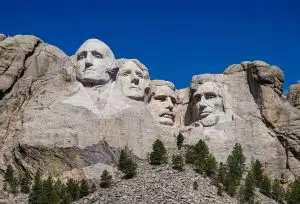
AI: George Washington, Thomas Jefferson, Theodore Roosevelt, and Abraham Lincoln Compared: Mount Rushmore, South Dakota 🗻⚒️
Here are four quotes, one from each of the presidents featured on Mount Rushmore:
George Washington: “Let your heart feel for the afflictions and distress of everyone, and let your hand give in proportion to your purse.”
Thomas Jefferson: “I am not an advocate for frequent changes in laws and constitutions, but laws and institutions must go hand in hand with the progress of the human mind.”
Theodore Roosevelt: “The credit belongs to the man who is actually in the arena, whose face is marred by dust and sweat and blood.”
Abraham Lincoln: “Government of the people, by the people, for the people, shall not perish from the earth.”
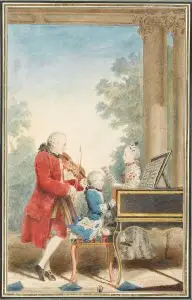
AI: 🎻 Mozart, 🎼 Beethoven, and 🩰 Tchaikovsky Compared: Masters of Classical Music 🎹
Mozart:
“The music is not in the notes, but in the silence between.”
This quote emphasizes Mozart’s understanding of the importance of phrasing, timing, and the spaces between the notes in creating a meaningful musical experience.
Beethoven:
“Music is the mediator between the spiritual and the sensual life.”
This quote reflects Beethoven’s belief in the transcendental power of music to connect the human spirit with the physical world, expressing emotions and ideas that transcend language.
Tchaikovsky:
“I am not a hero, but I have the courage of my convictions. I would rather be disliked for what I am than loved for what I am not.”
This quote reveals Tchaikovsky’s honesty and determination to stay true to himself and his artistic vision, even in the face of criticism and societal pressure.
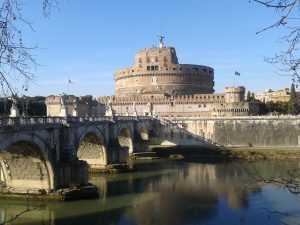
AI: 🪶 Nerva, 🦅 Trajan, 🧭 Hadrian, ⚖️ Antoninus Pius, and 📘 Marcus Aurelius Compared: Pax Romana, Five Good Emperors
Nerva: “Good government is knowing when to yield.” This quote reflects Nerva’s conciliatory approach and willingness to compromise to maintain stability in the empire.
Trajan: “I am the master of the world, but the law is the master of me.” This quote demonstrates Trajan’s respect for the rule of law and his commitment to just governance, even as a powerful emperor.
Hadrian: “I have visited the world and found nothing better than Rome.” This quote reveals Hadrian’s deep admiration for Rome and dedication to preserving and enhancing its cultural heritage.
Antoninus Pius: “It is better to save one citizen than to kill a thousand enemies.” This quote highlights Antoninus Pius’ peaceful nature and his prioritization of the well-being of his people over military conquest.
Marcus Aurelius: “The happiness of your life depends upon the quality of your thoughts.” This quote, taken from Aurelius’ philosophical work “Meditations,” emphasizes the importance of inner peace and the power of one’s thoughts to shape one’s life.

AI: 🦑 Jules Verne, 👽 H. G. Wells, and 🤖 Arthur C. Clarke Compared: Science Fiction
Jules Verne: “Anything one man can imagine, other men can make real.” – This quote captures Verne’s optimistic view of human ingenuity and the potential of science and technology to turn imagination into reality.
H.G. Wells: “If we don’t end the war, war will end us.” This quote reflects Wells’s deep concern about warfare’s destructive potential and the need for humanity to find peaceful solutions to conflict.
Arthur C. Clarke: “Any sufficiently advanced technology is indistinguishable from magic.” – This quote, often referred to as Clarke’s Third Law, highlights the awe and wonder that advanced technology can inspire, suggesting that the most advanced technologies may appear magical to those who do not understand them.

AI: 🌸 André Le Nôtre, 🌳 Lancelot ‘Capability’ Brown, and 🌲 Frederick Law Olmsted Compared: Gardeners
André Le Nôtre: “Symmetry is the language of order and grandeur.” This reflects Le Nôtre’s emphasis on geometric precision and formal design in creating visually impressive landscapes.
Lancelot “Capability” Brown: “Consult the genius of the place in all.” This highlights Brown’s philosophy of working with the natural landscape, enhancing its inherent beauty rather than imposing a rigid structure.
Frederick Law Olmsted: “A park is a work of art, designed to produce certain effects upon the mind of men.” This underscores Olmsted’s belief in the power of parks to provide recreational spaces and positively influence the well-being and mental state of those who experience them.
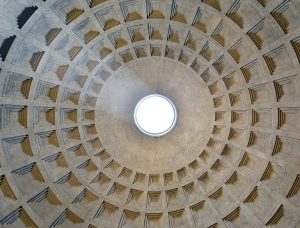
AI: 🏟️ Colosseum, 🔆 Pantheon, and 🕌 Hagia Sophia Compared: Roman Engineering and Architecture
Colosseum: “While stands the Colosseum, Rome shall stand; when falls the Colosseum, Rome shall fall; and when Rome falls the world.” – This quote, often misattributed to the Venerable Bede, captures the Colosseum’s symbolic importance to Rome and its empire.
Pantheon: “The Pantheon…simple, erect, severe, austere, sublime.” – Thomas Jefferson’s words perfectly encapsulate the Pantheon’s timeless elegance and architectural brilliance.
Hagia Sophia: “The Emperor Justinian built a church so marvelous that human language is insufficient to describe it.” – Byzantine historian Procopius captures the awe and wonder inspired by the Hagia Sophia’s grandeur and innovative design.
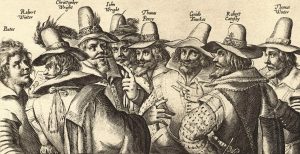
AI: Alcibiades, Guy Fawkes, and Benedict Arnold Compared: Traitor 🔁💔
Alcibiades, the audacious Athenian general, is remembered for his strategic brilliance and capricious loyalty. He shifted allegiances between Athens, Sparta, and Persia, highlighting the complexities of personal ambition and political survival in wartime Greece.
Guy Fawkes, infamous for his role in the Gunpowder Plot, epitomized religious zeal and radical resistance. His attempted act of treason against the English government still resonates in modern culture as a symbol of anti-establishment sentiment and defiance.
Benedict Arnold, once a celebrated general in the Continental Army, became synonymous with treachery after he defected to the British, driven by disillusionment and financial gain. His name is forever etched in American history as a cautionary tale of betrayal.

AI: 🕯️👁️ Francis Walsingham, ⚛️🧪 Klaus Fuchs, and 🛰️📷 Oleg Penkovsky: High-stakes Spies
Sir Francis Walsingham (England, 16th century): “Knowledge is power.” Walsingham, Queen Elizabeth I’s spymaster, understood the crucial role of intelligence in protecting the realm and maintaining political advantage.
Klaus Fuchs (Germany/ Soviet Union): “My motive was to help potential allies of Britain who had borne the brunt of fighting.” Fuchs, a nuclear physicist, justified his betrayal of Western secrets by claiming it leveled the playing field against potential enemies during the Cold War.
Oleg Penkovsky (Soviet Union): “I realized that a nuclear war would be a universal suicide, and I wanted to do whatever I could to prevent it.” Penkovsky, a high-ranking Soviet military officer, defected to the West and provided invaluable intelligence about Soviet capabilities, driven by a desire to prevent nuclear conflict.
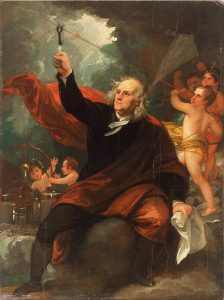
AI: 🏛️📘 Aristotle, 🎨⚙️ Leonardo da Vinci, and 🇺🇸⚡ Benjamin Franklin Compared: Polymathic Genius 🧩
“Knowing yourself is the beginning of all wisdom.” – Aristotle
In this timeless maxim, Aristotle encapsulates the essence of self-awareness as the foundation of wisdom. His philosophical insights continue to resonate through the ages, inspiring introspection and intellectual inquiry.
“Learning never exhausts the mind.” – Leonardo da Vinci
Leonardo da Vinci’s insatiable curiosity and dedication to lifelong learning are epitomized in this quote. His boundless creativity and multidisciplinary approach to knowledge exemplify the endless possibilities of the human intellect.
“An investment in knowledge pays the best interest.” – Benjamin Franklin
Benjamin Franklin’s pragmatic wisdom shines through in this succinct observation. As a polymath and statesman, Franklin understood the transformative power of education and intellectual pursuits in fostering personal growth and societal progress.

AI: ⚡📜 Morse (Telegraph), 📞🗣️ Bell (Telephone), and 📡🌊 Marconi (Radio) Compared: Communication Revolution
Samuel Morse (Telegraph): “What hath God wrought?” These were the first words Morse transmitted by telegraph, marveling at the power of his invention to connect people over vast distances instantly.
Alexander Graham Bell (Telephone): “Mr. Watson, come here. I want to see you.” With this simple sentence, Bell ushered in a new era of communication, allowing for direct, real-time conversations.
Guglielmo Marconi (Radio): “The coming of the wireless era will make war impossible because it will make war ridiculous.” Marconi hoped his wireless transmission could foster communication and understanding, potentially preventing conflict.
